In the age of heightened environmental awareness, the principles of Leave No Trace are more crucial than ever, especially as wild camping experiences a surge in popularity. Despite the breathtaking beauty of Scotland’s landscapes, social media platforms are inundated with reports of litter and irresponsible waste management in some of the country’s most cherished spots. With the recent boom in camper van tourism, coupled with an increase in roadside camping, it’s evident that a minority of individuals are failing to uphold the principles of responsible outdoor stewardship.
e.g.
In the short term, finding solutions to these challenges may seem daunting. The fear of contracting illnesses, such as the coronavirus, has led many to prioritize personal safety over environmental responsibility. This has resulted in a concerning disregard for waste disposal, particularly human waste, in outdoor settings.
Potential solutions include:
It’s imperative to address the root causes behind these behaviors. Many individuals fail to grasp the connection between their actions and the degradation of natural landscapes. Some even harbor the misconception that litter left outdoors will miraculously disappear—an assumption that is disproven by the enduring impact of waste on Scotland’s delicate ecosystems.
At Scot Mountain Holidays we are steadfast advocates of Leave No Trace principles and adhere to the reduce-reuse-recycle ethos. Our commitment extends to our Wilderness Glamping Expeditions, where we prioritize environmental stewardship without compromising on comfort.
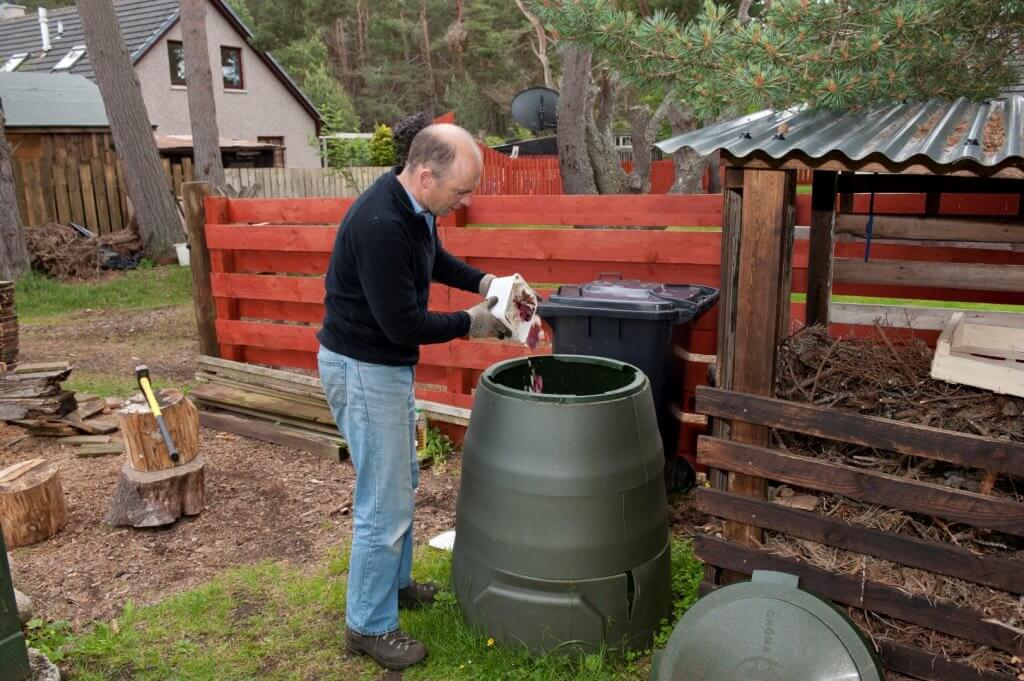
Andy using the hot composter at Fraoch Lodge. We can recycle all kinds of food waste, including cooked food scraps.
Please – if you’re going to camp by the roadside, by which we mean under 30 minutes walk from the road or within sight of cars/a road – pack a shovel and make sure you bury your waste. Once you’ve prepared your toilet site and done your business, you can use the lighter to burn the paper, then bury what’s left. Human waste will degrade far more quickly if it is buried.
It’s a shame that wild camping is getting such a bad name a the moment here in the Highlands. We like to distinguish between roadside camping, dirty camping and wild camping. Our new Wilderness Glamping Expedition is really “pure” wild camping following the Leave No Trace principles and the Scottish Outdoor Access Code completely without sacrificing comfort.
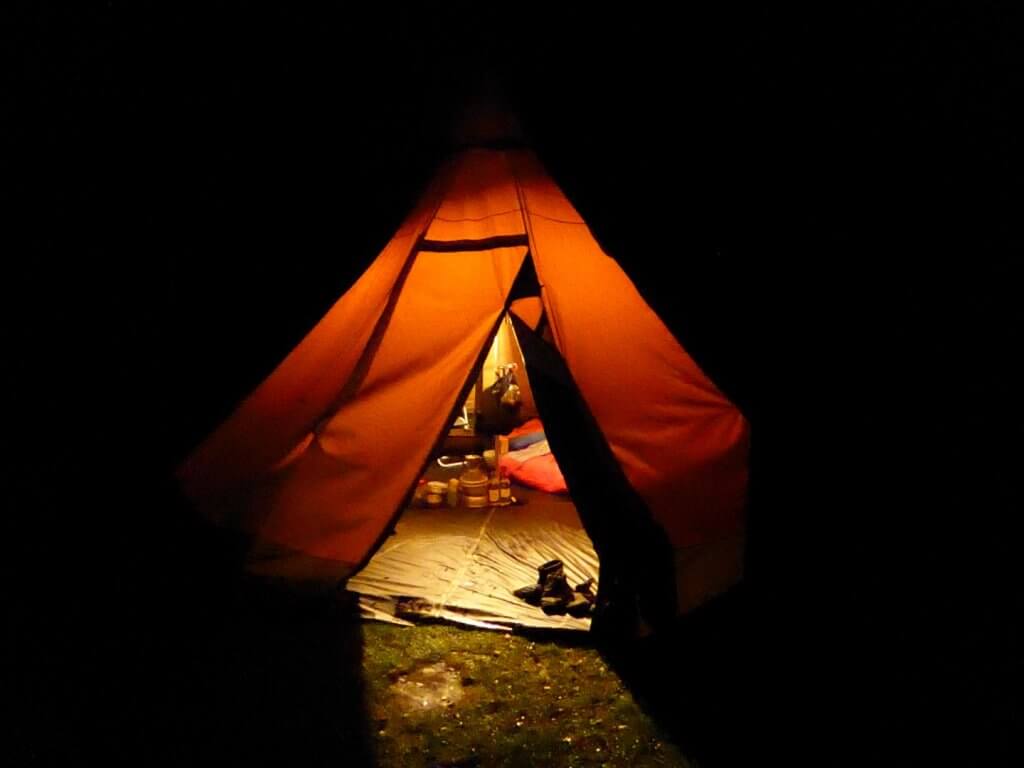
Our Tentipi on the wilderness expeditions
Is it the case long-term though that camping in whatever form it takes is really the problem? Perhaps we’re facing a more serious issue as per Chris Townsend’s article below.
Interesting perspective from Chris Townsend Gain insights from Chris Townsend’s perspective on the real threat to wild places: industrialization.
A beginner’s guide to guiding in Scotland Explore Fiona Russell’s beginner’s guide to guiding in Scotland for valuable tips and insights into responsible outdoor recreation.
Together, let’s embark on a journey towards sustainable wild camping, ensuring that future generations can continue to marvel at the untamed beauty of Scotland’s landscapes.
We are so lucky here – wild camping in Scotland is a perfectly legal activity. The Scottish Outdoor Access Code allows us remarkable freedom, but as a result of coronavirus there seems to have been a resurgence in irresponsible access to the outdoors. Lockdown has inspired many to head out into the countryside and enjoy nature; exercise outdoors etc – especially as the gyms have been and remain shut in Scotland for now. Many have turned to so-called wild camping – much of which is a result of people touring in their own motor, caravan and motorhome. Not what we call wild camping. For us, if you’re wild camping you’re unlikely to see any other people at all and you won’t have the luxury of motorised transport.
We’re seeing an increasing number of reports in the local and national press these days about rubbish & fires. All these reports relate to what the press call “wild campers”. Social media is full of images of heaps of rubbish collected by local residents from walks in local beauty spots. It seems that there is an increasing problem with camping equipment being left behind and human waste not being properly disposed of. Of course, this is more of a problem at the moment as public toilets have been slower to open up in this age of coronavirus pandemic.
All this though is not due to “wild camping” in its truest sense. By rights wild camping and roadside camping should not be confused.
To wild camp you must:
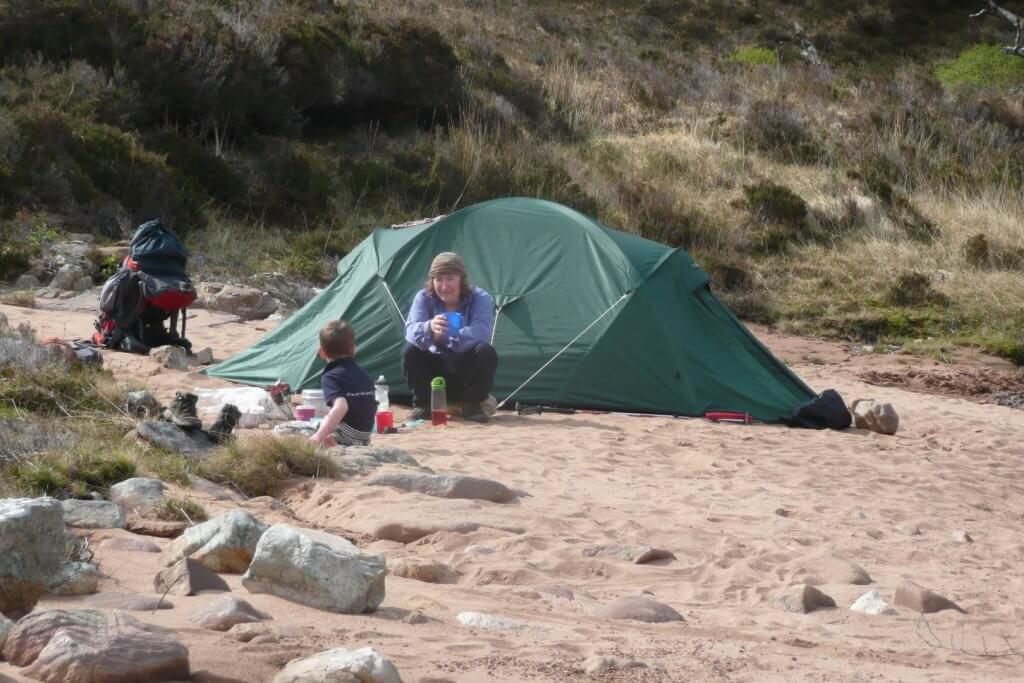
“At Mountaineering Scotland, we continue to promote responsible access and behaviour to our members and the mountaineering community through our communications and campaigns. We believe that the problem is the behaviour, not the activity of camping, and that the creation of additional legislation will not be the solution. The existing legislation already deals with irresponsible and criminal behaviour; what is needed is more investment in low cost facilities, improved public information and councils, communities and police working together to find local management solutions.”
There are no doubt many people who camp close to the road and leave no trace. Unfortunately as per normal, it’s the minority who could spoil it for the rest of us. It is especially important in the time of a hugely infectious pandemic, to make sure that you do not leave any waste behind you. By this I am not referring only to plastic, cardboard etc, but also to any bodily waste. If you’re going to go and camp outside a camp site where public toilet facilities are not available, you need to either take your poo away with you to dispose of properly or bury it in a safe site. If you do not know the protocol, make sure you find out before you leave.
When you work for yourself, from home and your home is your business, it is difficult to get quality time away from work. Our choice is usually to head out for an overnight wild camp – maximum enjoyment for minimum time away. It often feels as if we’ve been away for a week after we come back from an overnight in the hills. The only problem is that we don’t go often enough!
We think it’s such a great way to relax and get away from the stresses of daily life, that we’ve incorporated a luxury version in our programme which you could enjoy too.
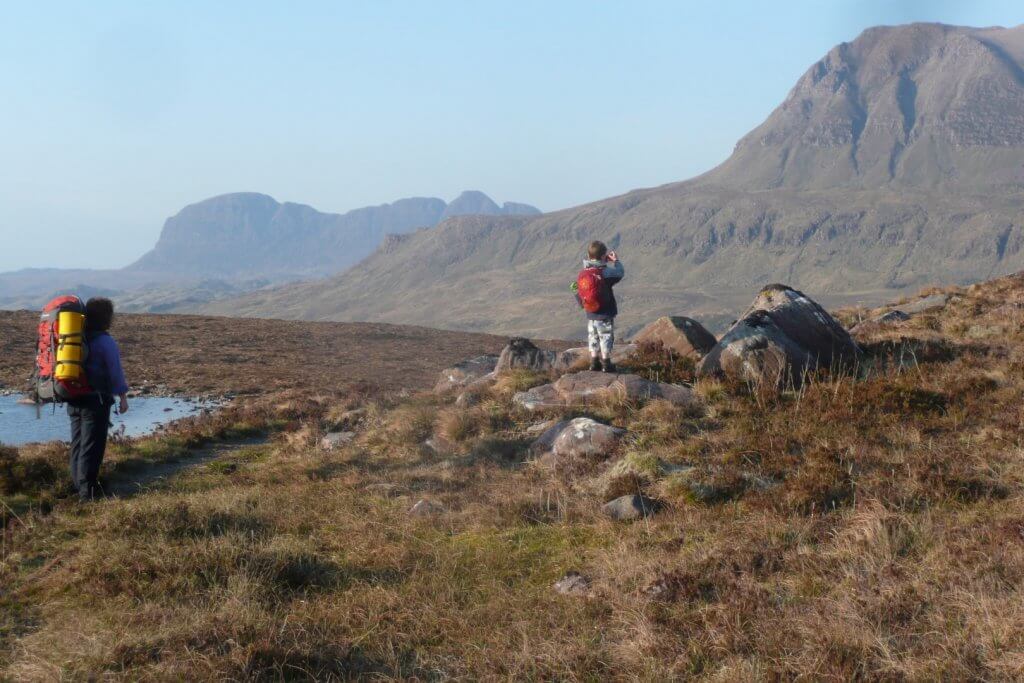
We’ve taken the wild camping concept one step further and made it more of a glamping experience. However, we’re still conforming with all the principles of “wild camping” above. No motorised transport; more than 30 minutes walk from a road; self-reliant and independent. Check it out.
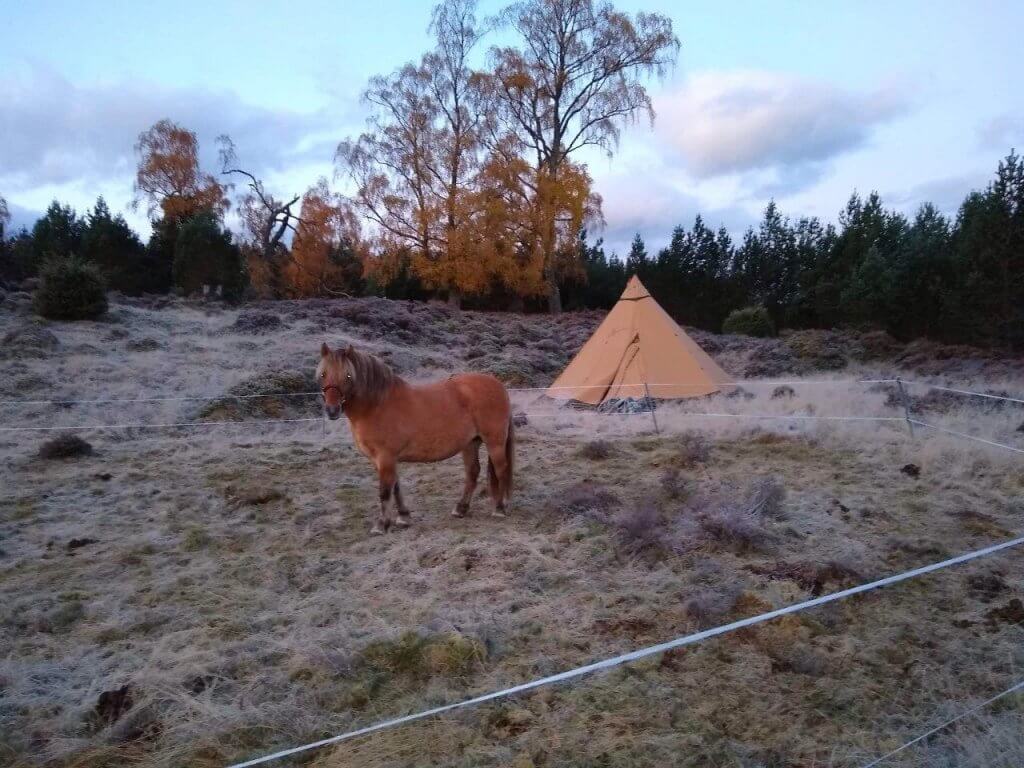
Respect a few simple rules or run the risk of losing the right to camp responsibly: check out this article
For a more in depth article covering wild camping across Scotland check out Alex Tiffany’s article on JustgoExploring
Camping – a beginner’s guide by Fiona Outdoors
Wild Camping: Scotland’s top 10 spots
Guide to Wild Camping in Scotland (WatchMeSee)
Visit Scotland guide to Wild Camping
All content © Copyright Scot Mountain Holidays 2024
Responsive web design by Summit Web Solutions